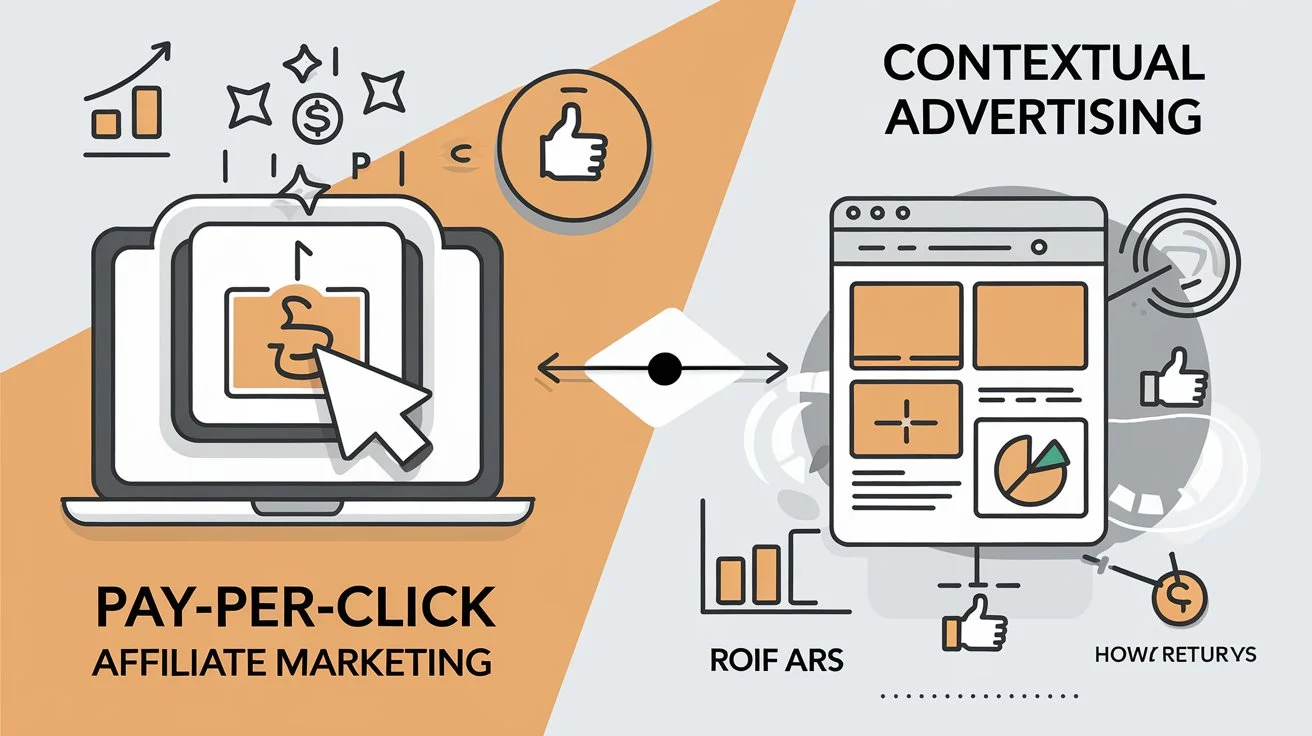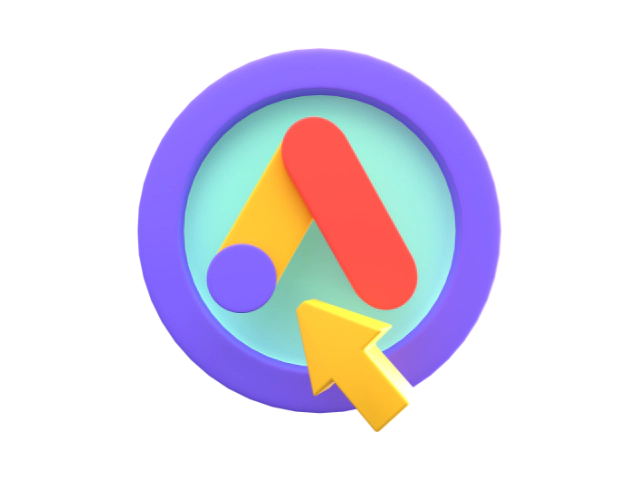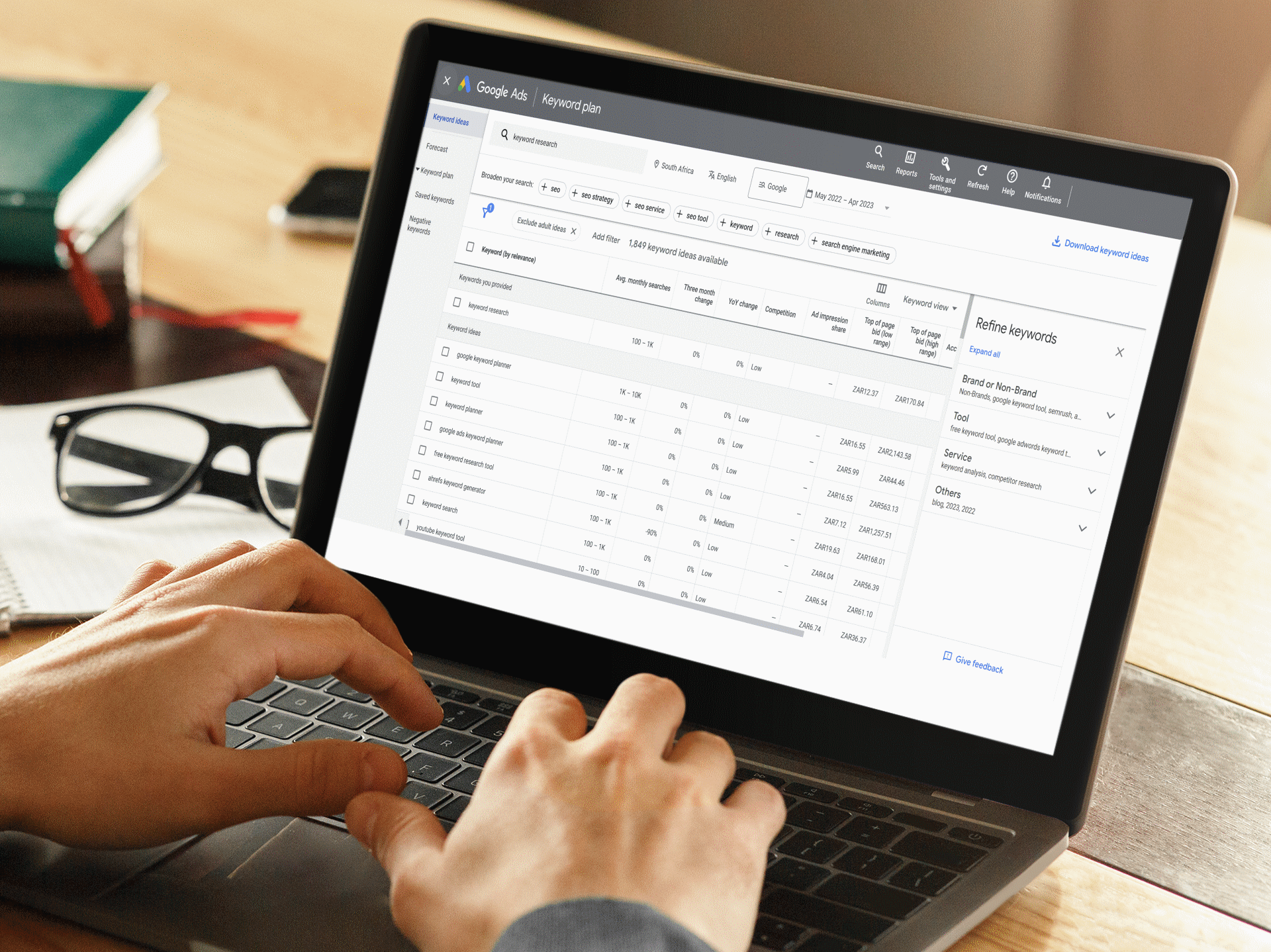
Master pay per click affiliate marketing with key strategies to boost your earnings and maximize success!
Master pay per click affiliate marketing with key strategies to boost your earnings and maximize success!

Pay-per-click affiliate marketing is a big hitter. You get paid whenever somebody clicks on your ad. Slick, right? Imagine having a money machine where every click makes you cash. Well, that’s this.
Here’s the skinny: Affiliates (that’s you) run PPC campaigns driving folks to special landing pages. When they make a purchase through your links, you rake in commissions (Unicorn Platform). For instance, with Amazon’s program, you could be making up to 10% on sales from your PPC ads.
| Aspect | Description |
|---|---|
| How You Get Paid | Cash in for clicks. |
| Quality of Visits | Good traffic means better returns. |
| How Much You Can Earn | Depends on the goodies you’re pushing and the cut you get. |
In 2024, to nail your PPC campaigns, focus on CPA (cost per acquisition) and ROAS (return on ad spend) goals.

Contextual advertising is all about showing ads that mesh with the content. It’s the magic sauce for keeping the ads relevant and juicy for website visitors.
So how does it play out? Advertisers pay when someone interacts with the ads, just like PPC. But here’s the twist: the ads fit the context of the page, making them way more likely to get clicks. RevenueHits, for instance, rolls with a CPA program where your dough depends on real actions or conversions
Marketers loving this type can blend products or services right into their content. Wanna talk about a seamless experience?
| Aspect | Description |
|---|---|
| Where Ads Show Up | Ads match the page content. |
| Engagement Level | More clicks because they’re spot on. |
| Cash Flow | Paid when clicks turn into actions, not just clicks. |
Both PPC and contextual ads are power players in affiliate marketing, giving you the arsenal to up your earnings. Knowing their quirks and strengths can sharpen your strategies, making them more efficient for your audience. For more juicy details, peek at our deep dive on affiliate marketing types.
Ready to turn those clicks into cash? Start today!
If you’re an affiliate marketer looking to rake in some dough, Pay-Per-Click (PPC) affiliate programs can be a goldmine. Here’s a lineup of some top-notch PPC affiliate programs that’ll help you boost your income.

Google AdSense is the granddaddy of PPC programs. It’s simple—post ads on your site and earn when folks click. From text ads to slick videos, AdSense has it all. Plus, its user-friendly interface and top-notch analytical tools make it perfect for anyone, newbie or veteran.
| Feature | What You Get |
|---|---|
| Cash Model | Paid for each click |
| Ad Types | Text, banners, videos |
| Payout Threshold | Hit $100 to cash out |
| Reports | Fancy analytics |
Ezoic takes ad optimization to the next level. It uses smart algorithms to test different ad setups, so you make more money. And it plays nice with Google AdSense, giving you even more options for ad types.
| Feature | What You Get |
|---|---|
| Cash Model | Paid for each click |
| Ad Types | Text, banners, native ads |
| Payout Threshold | $20 to cash out |
| Reports | Sleek dashboard |
Media.net works off the Yahoo-Bing Network, offering ads that match your site’s content. These tailored ads can really bump up your revenue, especially if your site is content-heavy.
| Feature | What You Get |
|---|---|
| Cash Model | Paid for each click |
| Ad Types | Contextual ads |
| Payout Threshold | $100 to cash out |
| Reports | Real-time analytics |
AdThrive is a dream for bloggers and content creators who want to maximize their ad revenue. It’s specialized for premium ad placements, making it great for high-traffic sites with engaging content.
| Feature | What You Get |
|---|---|
| Cash Model | Paid for each click |
| Ad Types | Display, video ads |
| Payout Threshold | $25 (paid monthly) |
| Reports | Detailed performance metrics |
Each of these PPC affiliate programs brings something different to the table. So, whether you’re new to the game or a seasoned pro, there’s something here for you. Dive in and discover which program best suits your pay per click affiliate marketing strategy!
If you want to hit the jackpot with pay per click affiliate marketing, you’ve gotta get your strategy game on point. Nail your ad targeting and do some serious keyword detective work, and you’ll be counting clicks and cash in no time.

Picking the right niche is like finding gold. Put in some effort to figure out a niche that fits your target crowd and can make you some dough. Tools like the Free Keyword Tool can help you spot hot keywords in your chosen niche. This means more eyeballs on your ads and more money from those clicks.
The big guns in PPC affiliate marketing are pros at swiftly zeroing in on profitable keyword niches. They’re always tweaking their campaigns to make sure their ads pull in non-brand traffic and hit their targets. Ignore this and you’re just throwing away chances to grow.
| Key Components | Description |
|---|---|
| Niche Selection | Choose a moneymaker that speaks to your audience. |
| Research Tools | Think Free Keyword Tool for high-traffic words. |
| Campaign Management | Tweak those ads to pull in all kinds of traffic. |

Constantly digging for the right keywords is a must in PPC affiliate marketing. Don’t just chase the popular ones; go after those long-tail keywords that people actually use when they’re ready to buy something.
Having a massive keyword list is cool, but zeroing in on keywords that drive traffic is even cooler. Prioritize striking keyword gold quickly so you stay ahead of the game.
| Keyword Research Strategy | Description |
|---|---|
| Long-Tail Keywords | Target niche keywords for better conversions. |
| Competitive Analysis | Keep an eye on competitors for fresh ideas. |
| Ongoing Research | Always refine your keywords as markets shift. |
By nailing your ad targeting and acing keyword research, you can carve out your place in the pay per click affiliate marketing scene. Hungry for more? Check out our article on affiliate marketing types for even more juicy tips.
Wanna make it big in PPC affiliate marketing? It’s all about picking the right program and cranking up that traffic. Let’s break it down.
You want the best bang for your buck? Then you need to choose wisely. Here’s a quick rundown of some top programs:
| Program Name | Payment Scheme | Traffic Bar | Cash Out Min |
|---|---|---|---|
| Google AdSense | CPC (Cost Per Click) | None | $100 |
| Ezoic | CPC | 500 – 1,000 monthly visits | $20 |
| Media.net | CPC | No set rule | Not public |
| AdThrive | RPM (Revenue Per Mille) | 100,000 unique visitors | Not public |
Choose what fits—your traffic, content type, and money goals.
To make the big bucks, you need eyeballs on your content. Here’s how to pull in the crowd:
Nail these strategies, and you’ll see traffic—and your earnings—skyrocket. Want to know more? Check out our dive into types of affiliate marketing.
Pay Per Click (PPC) affiliate marketing is a performance-based advertising model where affiliates earn a commission each time a user clicks on an advertiser’s link or ad. Affiliates promote the advertiser’s product or service through paid ads and are rewarded for driving traffic that results in clicks.
In PPC affiliate marketing, an affiliate partners with a brand or advertiser to promote their products or services using paid advertisements, typically through platforms like Google Ads, Facebook Ads, or Bing Ads. The affiliate places a unique tracking link in the ads. When users click on these ads, the affiliate earns a commission, regardless of whether a sale is made.
Quick Results: Unlike organic marketing strategies, PPC campaigns can drive traffic quickly.
Scalable: Affiliates can control their budget and scale up successful campaigns.
Targeted Audience: Ads can be targeted to specific demographics, locations, and interests, increasing the likelihood of clicks.
Some popular platforms for PPC affiliate marketing include:
Google Ads: The most widely used platform, ideal for search and display ads.
Facebook Ads: Great for targeting specific demographics with display ads.
Bing Ads: A less competitive platform with often lower CPC (cost per click).
Native Ad Networks: Platforms like Taboola and Outbrain for promoting content-driven ads.
High Competition: Bidding wars for popular keywords can drive up costs.
Ad Approval: Platforms may have strict rules that affiliates must follow to get ads approved.
ROI Management: Ensuring that ad spend doesn’t exceed earnings can be challenging, especially in competitive niches.
Relevance: Choose keywords closely related to the product or service you’re promoting.
Search Volume: Look for keywords with a good amount of search traffic.
Competition: Consider the level of competition for each keyword. Lower competition keywords may offer a better ROI.
Commercial Intent: Target keywords that indicate a high intent to purchase.
Click-through Rate (CTR): The percentage of people who clicked on your ad after seeing it.
Conversion Rate: The percentage of clicks that result in a sale or desired action.
Cost Per Click (CPC): How much you’re paying for each click on your ad.
Return on Investment (ROI): The profitability of your PPC campaigns.
PPC (Pay Per Click): Affiliates are paid for each click they generate, regardless of whether a sale is made.
CPS (Cost Per Sale): Affiliates are only paid when their traffic results in a sale.
CPL (Cost Per Lead): Affiliates are paid when their traffic results in a lead, such as a sign-up or email capture.
Use Fraud Detection Tools: Tools like ClickCease or TrafficGuard can help monitor and block fraudulent clicks.
Monitor Your Traffic Sources: Be wary of suspicious traffic spikes from unknown sources.
Set IP Exclusions: Exclude IP addresses that are repeatedly clicking your ads without converting.
Yes, but it requires a learning curve. Beginners should start with a modest budget, focus on learning the basics of PPC management, and gradually scale up as they gain experience and see positive results.
Choose a Niche: Focus on a niche you understand and where there’s demand.
Select Affiliate Programs: Join reputable affiliate networks like Amazon Associates, ShareASale, or ClickBank.
Set Up Tracking: Implement tracking to measure your campaign’s performance.
Create Ads: Design engaging ads and target the right audience.
Monitor and Optimize: Continuously monitor your ads and optimize for better performance
Yes, always comply with advertising platform policies, disclose your affiliate relationship in the ad content, and avoid misleading claims to ensure compliance with regulations like the FTC’s guidelines.